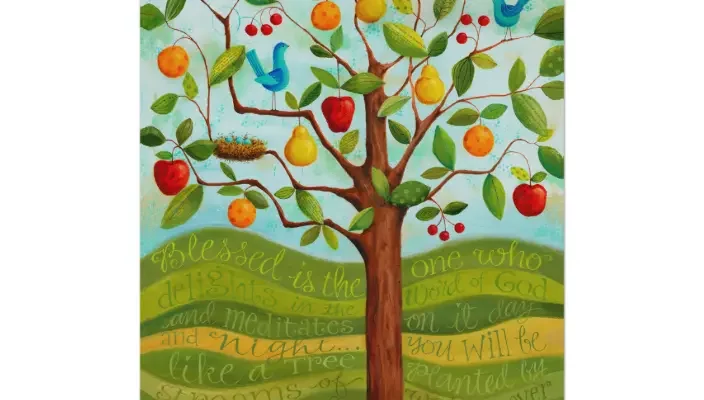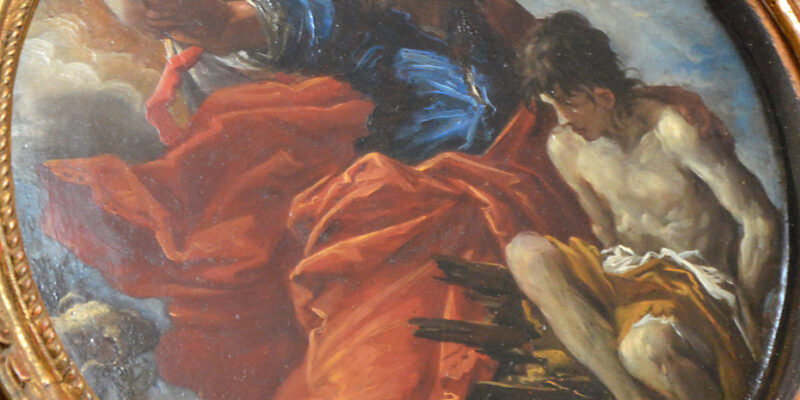Read or Listen
Introduction to the Seminar
Oxford Interfaith Forum presents Interfaith Discussion Series intended to promote interreligious dialogue between scholars of different faiths that draw from similar scripture traditions. This session, entitled “Discussions on Abraham and His Children,” is meant to focus on shared narratives of tradition about the Religious Patriarch Abraham. The session was chaired by Rev. Dr. John Goldingay (Emeritus, Fuller Theological Seminary).
Complex Religious Traditions about Abraham
Professor Anna Sapir Abulafia (Professor of the Study of Abrahamic Religions, the University of Oxford) outlined various approaches to the story of Abraham in relation to his sons, and their sons, as each of the three religions approach the story as scripture supporting the exclusivity of their own religions. For example, she described how the story of Jacob, born to Isaac and Rebekah, symbolized for Christians that the younger religion, Christianity, was meant to rule over the former religion, Judaism. This idea permeated medieval theology so much that Augustin declared that Jews were meant to be book carriers for Christians, signifying that the Hebrew Bible was preserved for Christianity. Professor Abulafia urged for a willingness to embrace a more complex view of the three religions as they evolved through time. Her presentation promoted an interfaith view, acknowledging that even though each religion drew upon the Abrahamic narrative to exult their religion above and against the other two, it is more likely that there are broader views to be represented even among the three religions.
Father Abraham, Mother Hajar (Hagar)
Dr. Zeyneb Sayilgan (The Institute for Islamic, Christian, and Jewish Studies, Baltimore, MD) presented on the Prophet Abraham in Islamic spiritual practice. She proposed the view of wisdom gained by inspiration from “Father Abraham and Mother Hajar (Hagar).” She speaks about Hajar (Hagar) as a mother of faith, a person who is an enslaved black woman from Egypt. She was a low-born domestic laborer, a foreigner, a refugee, and a single mother abandoned by her son’s father. It is from the quiet dignity of a lowly born slave that Muslims descend. Mother Hajar is a profound figure of inspiration in the Muslim faith. She is also a figure that is esteemed for her faith in God, trusting that God is the one who called Abraham to abandon her and her son. Dr. Sayilgan concluded with a poem that expresses the sentiment of inspiration felt from the lived example of Mother Hajar, which is included below:
The First Thing by Mohja Kahf
I am Hajar the immigrant
There came to me the revelation
of the water
I left the world of Abraham,
jugs sealed with cork,
cooking-grease jars,
Sarah’s careful kitchen fires
The horizon is a razor
I moved over, severing
slates of earth,
sediment of ancient seas,
To stand alone, migrant, here,
where the shape of the cup of morning is strange
where dome of sky, mat of earth have shifted
where God does not have a house yet
and the times for prayer have not been appointed,
Where the only water is buried deep
under hard ground and I must find it
or my unborn people die within me
The first thing
the founder does
is look for water
I am Hajar, mother
of a people
I stand here
straddling the end and the beginning
Each rock cuts into the heel like God
Each step is blood, is risk:
is prayer
Discussion & Response
This discussion is meant to be a brief intrareligious discussion of shared scriptures among faith traditions and made good work of briefly fitting the presentations and the following discussion into an hour. It is interesting to note that the views of Abraham throughout history are not clear-cut. Any attempt to clarify or distinguish between these views should be tempered by recognizing the complex relationship between the religions of Islam, Christianity, and Judaism. Their boundaries have not always been clear-cut. The other point that was raised was the focus of the Genesis narrative around the perspective of men. We get very little of Sarah’s perspective and input as a mother, and while the Hebrew Bible account does give us details of Hagar’s role in the life of Ishmael, the Quran gives even more detail and dialogue to the mother figure.
For myself, having read the Hebrew account of Abraham’s family in Genesis many times, I am increasingly intrigued by the character Hagar, who speaks freely with God and whose requests for help are directly answered by God. Even though Sarah is the female character typically exalted in Christian traditions (particularly in the New Testament book of Hebrews), she is mostly silent in the Genesis narrative. She dies shortly after the story of Isaac’s “binding” or sacrifice. She also fails to believe God when she laughs at the promise that she will have a child and manipulates the people around her. She gives her slave to her husband as a surrogate and then treats her with contempt and drives her away. Even all of this is such a small part of the Genesis narrative. Most of the story is given to Abraham, his perspective, and his interaction with male family members. The lack of emphasis on female perspectives in these narratives stands out whenever these texts are considered. It is refreshing to hear a presentation emphasizing the inspiration found in the Islamic remembrance of Mother Hajar, the slave Hagar.

Dr. Erica Mongé-Greer, holding a PhD in Divinity from the University of Aberdeen, is a distinguished researcher and educator specializing in Biblical Ethics, Mythopoeia, and Resistance Theory. Her work focuses on justice in ancient religious texts, notably reinterpreting Psalm 82’s ethics in the Hebrew Bible, with her findings currently under peer review.
In addition to her academic research, Dr. Mongé-Greer is an experienced University instructor, having taught various biblical studies courses. Her teaching philosophy integrates theoretical discussions with practical insights, promoting an inclusive and dynamic learning environment.
Her ongoing projects include a book on religious themes in the series Battlestar Galactica and further research in biblical ethics, showcasing her dedication to interdisciplinary studies that blend religion with contemporary issues.



1 Comment